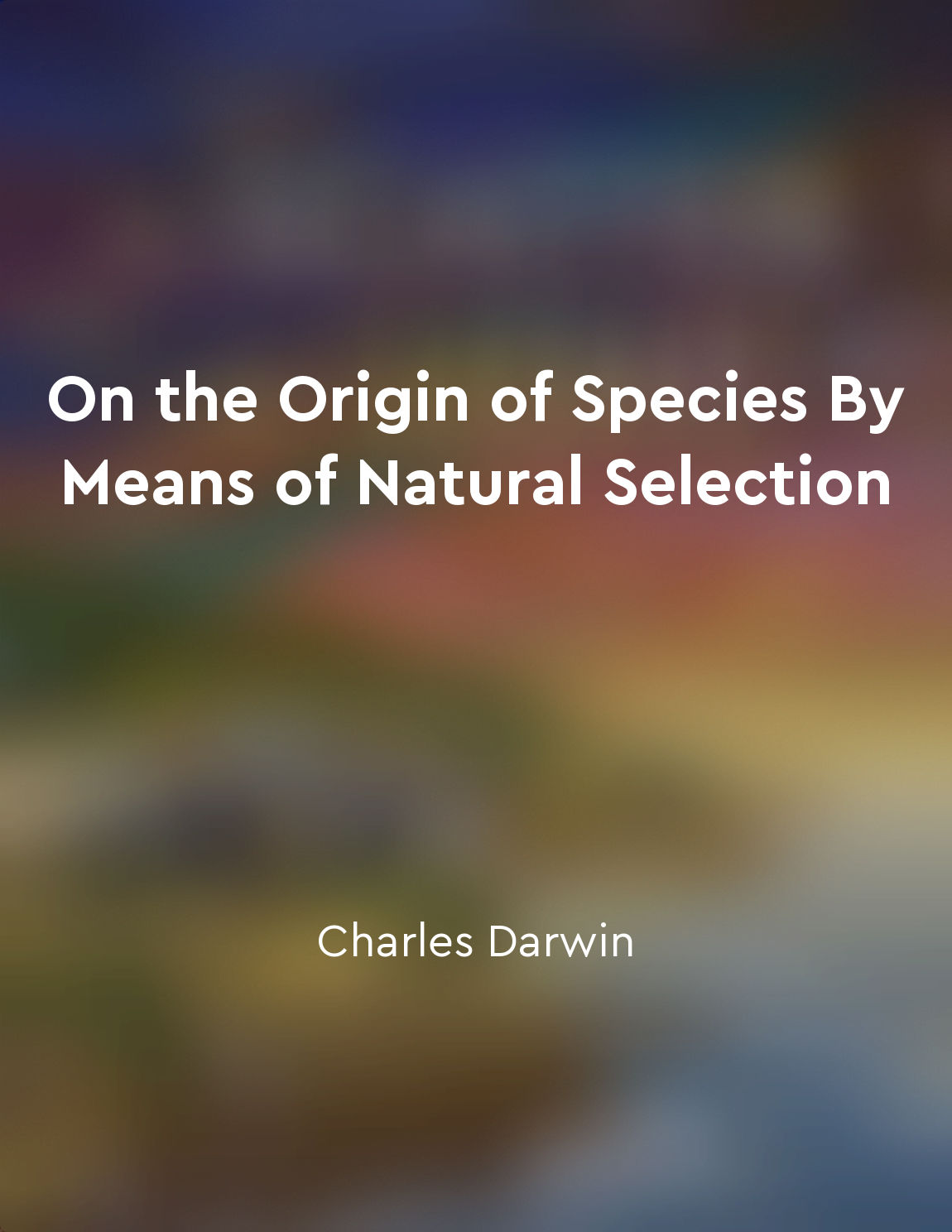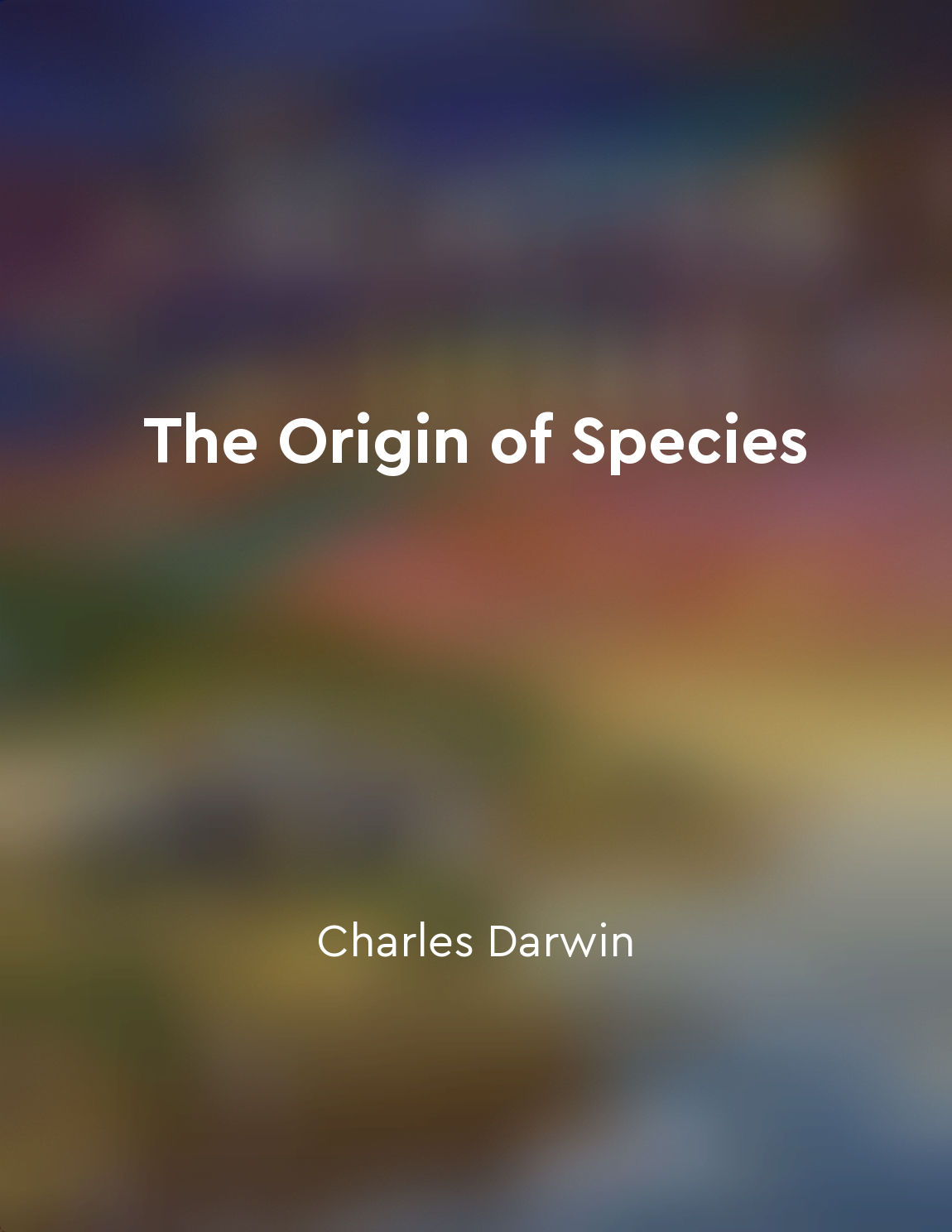Survival of the fittest applies to genes, not individuals from "summary" of The Selfish Gene by Richard Dawkins,Charles Simonyi Professor of the Public Understanding of Science Richard Dawkins,David Dawkins,RICHARD AUTOR DAWKINS
The idea that survival of the fittest applies to genes, not individuals, is a fundamental concept in understanding the process of evolution. When we talk about survival of the fittest, we are not referring to individual organisms competing against each other in a struggle for existence. Instead, we are talking about the competition between genes to be passed on to future generations. Genes are the units of information that are passed down from one generation to the next. They are the building blocks of life, containing the instructions for the development and functioning of an organism. Genes can be thought of as selfish entities, driven by the desire to replicate themselves and ensure their own survival. In the grand scheme of evolution, it is the genes that are competing with each other for survival. Genes that are successful in replicating themselves are the ones that will be passed on to future generations, while those that are less successful will be lost over time. This process of natural selection acts on the level of genes, not individuals. Individual organisms are simply vehicles for genes to be passed on. They are disposable entities that come and go, while genes continue to persist through generations. The traits and behaviors of individuals are shaped by the genes they carry, as genes that promote survival and reproduction are favored by natural selection. Understanding that survival of the fittest applies to genes, not individuals, allows us to see evolution in a new light. It helps us to appreciate the complexity and interconnectedness of life, as well as the driving force behind the diversity of species on Earth. By focusing on genes as the units of selection, we gain a deeper insight into the mechanisms that govern the evolution of life on our planet.Similar Posts
positive mental attitude
The concept of Positive Mental Attitude is a crucial component in achieving success and prosperity in life. It is the foundatio...
Variation within species is essential for evolution
The central tenet of evolutionary theory, as articulated by Charles Darwin and further developed by subsequent scientists, is t...

Adaptation to environment
The ability of living beings to adapt to their environment is a fundamental aspect of the natural world. This process of adapta...
Evolutionary theory challenges traditional views of progress
The concept of progress in evolutionary theory challenges traditional views that uniformly extol progress as an inherent featur...

Population growth leading to competition
As more individuals are produced than can possibly survive, there must in every case be a struggle for existence, either one in...

Common descent links all living organisms
Darwin proposes that all living organisms on Earth are connected through a shared ancestry, tracing back to a common origin. Th...

Extinction of less adapted species
The process of natural selection inevitably leads to the extinction of less adapted species. As new and better-adapted species ...

Struggle for existence in nature
The term "struggle for existence" in nature refers to the fierce competition that takes place among species for limited resourc...

Adaptations enhance survival in changing environments
The ongoing struggle for survival among organisms in nature is a fundamental aspect of the natural world. In this perpetual bat...
Sexual conflict arises from differences in reproductive interests
In the throes of evolutionary history, males and females engage in a perpetual struggle over reproductive success. This conflic...
